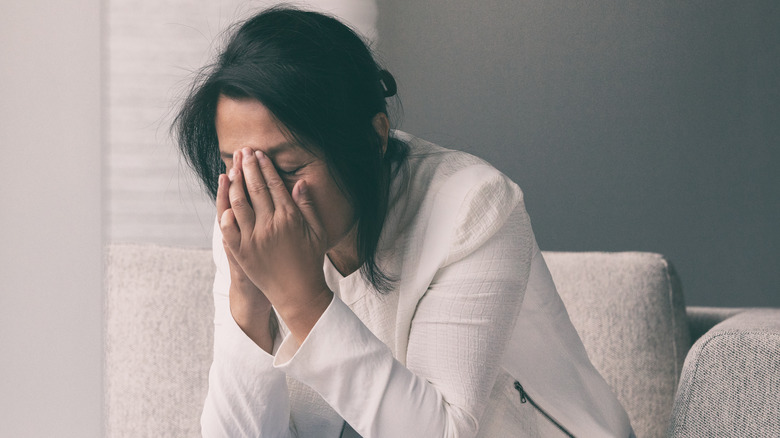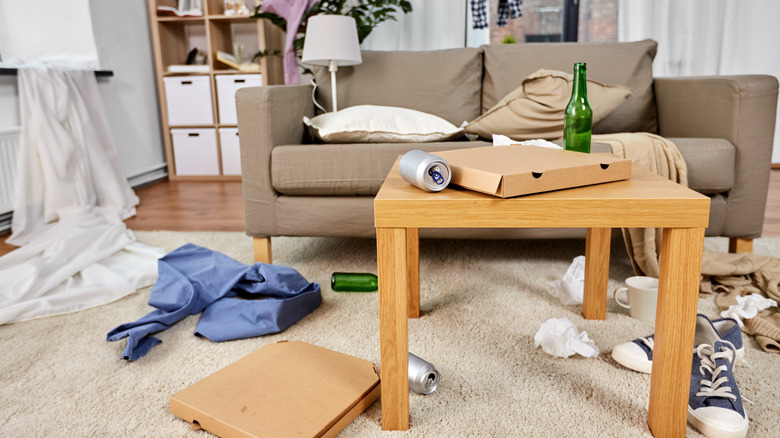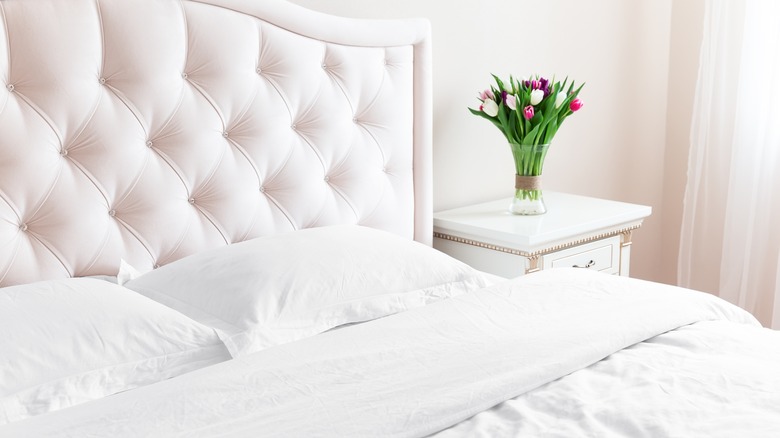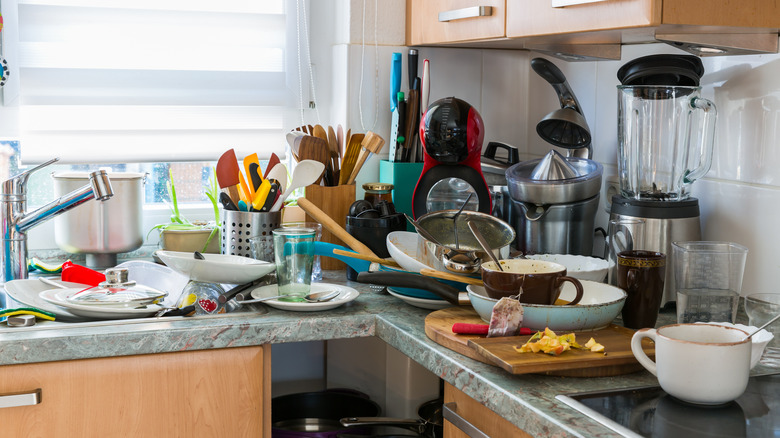5 Hidden Ways Your Home Is Stressing You Out
Everyone needs a place to escape the stressors of life, where you can walk in the door and breathe a sigh of relief, but what if your home is one of those stressors? It's easy to avoid small tasks, but, eventually, those small tasks pile up and become big projects. Before you know it, you have an overwhelming home. The good news is by taking baby steps to tackle one project at a time, you can restore your refuge and keep it stress-free with a little organization and planning
The American Psychological Association says that when it comes to life's stressors, the first step is acknowledging that you have to make changes. For your house, acknowledge that it didn't become stressful overnight and it will take time and new habits to maintain your new peaceful space. The decorating blog StoneGable suggests scheduling as little as 15 minutes a day to work toward your home goals. While some daily habits will make an impact immediately, other projects may take time to deal with, but rest assured, it will be worth it.
1. Clutter
In "Farming: A Hand Book," Wendell Berry states, "Don't own so much clutter that you will be relieved to see your house catch fire." If you have ever felt that way, there's no time like the present to tackle the clutter in your home, but how do you identify what is clutter and what is not?
Simple Everyday Home has some suggestions, including identifying how the items taking up space in your home make you feel. Is half your closet filled with clothes that make you feel guilty because they don't fit? Do you open drawers and close them immediately because they make you feel anxious? These are some signs that it's time to get rid of your clutter. As the saying goes, one person's trash is another person's treasure. Donate those items to a charity thrift store and feel good about helping someone else while easing your stress.
It may take a while to declutter the whole house. That's OK. Remember that 15 minutes spent a day decluttering will add up quickly, and you will still have the benefit of seeing instant results, even if it's just one drawer.
2. Messy bed
Your bedroom is the most important space in your home for relaxation. One simple new habit to help reduce stress in your home is to make your bed every morning. A tidy bed leads to a tidy room, which leads to a relaxed mind. According to Verywell Mind, the ritual of making your bed prepares you for a successful day. After all, you just woke up and you have already accomplished something!
Before embarking on this new habit, take a moment to consider why you don't make your bed regularly. Is it a complicated process with multiple blankets and pillows that have to be placed perfectly? If that's holding you back, consider decluttering your bed. A simple arrangement on a made bed is far more attractive than a messy one that's accompanied by a pile of throw pillows on the floor. By removing unnecessary items, you will only need to spend a few minutes making your bed each morning.
3. Paperwork
Paperwork is stressful, and it just seems to keep coming. It's hard to know what to keep and what to toss, but there are some ways to keep paper clutter from coming into your home and others to manage what you already have.
Clutter suggests stopping paper clutter before it ever enters your home by going paperless. Since you can access bank statements, bills, medical records, and other information online, opt for paperless communication as often as possible. When it's time to deal with your existing piles of paper, the on-demand storage company also suggests creating a stack for paperwork you can scan, another for originals you need to save, and a third to shred or throw away. Never put paperwork with personal information in the garbage, these sensitive items should always be shredded before disposal.
Once you've narrowed down your paperwork to only what you need to keep, create a system of filing that allows you to find paperwork when you need it. Keep up with paperwork on a daily or weekly basis to keep it from piling up again. A minute or two a day will save you a lot of boring work later.
4. Dirty kitchen
It's so easy to turn out the light on a dirty kitchen and promise yourself you'll deal with it in the morning, but then morning comes and you're faced with a dirty kitchen you still don't want to clean! The key to keeping your kitchen clean is to deal with messes as they happen — as nice as it would be, the kitchen will not clean itself no matter how long you avoid it.
The first step to keeping a clean kitchen is making sure every item has a designated space, according to Ovenclean. If you're out of room in drawers and cabinets, it's probably time to declutter. Get rid of everything you do not use, and assign a spot for everything you do. Now that your kitchen is decluttered, clear your countertops of everything you don't use every day. This is not a place for decorative items or cute knick-knacks, states The Savvy Sparrow. With fewer items to clean around and under, it takes less time to wipe down countertops.
Finally, make a plan to deal with dirty dishes after meals. Assign a day for each member of the family to take a turn doing dishes. If you live alone, create a new habit of washing dishes immediately after you eat so you can go to bed looking forward to waking up to a clean kitchen.
5. Intrusive lighting
You might not realize it, but light might be stressing you out, too. The Centers for Disease Control and Prevention recommends keeping your bedroom as dark as possible for the best night's sleep. If city lights, street lamps, or the neighbor's motion sensor lights are keeping you awake at night, consider investing in blackout curtains. If possible, block any other light coming into the room by closing the bedroom door when it's time to go to bed. If installing curtains and keeping the door closed are not options, a sleep mask is an inexpensive and convenient way to keep intrusive lights out of your eyes.
The CDC also warns about keeping blue lights out of your sleeping space. This includes laptops, tablets, TVs, and other technology items. Instead of sleeping with the television on for sound, invest in a sleep machine or use a white noise app on your phone — with the screen off, of course.





